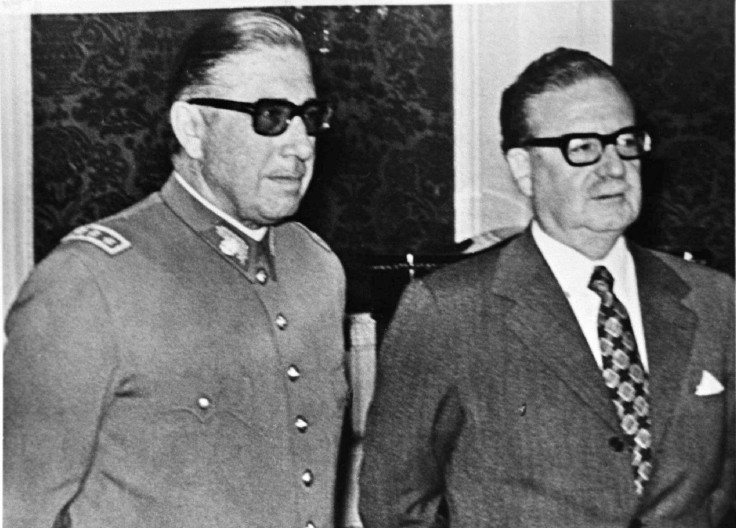
Sept. 11 is a date that many around the world remember as a terrible day against the United States. In 2001, terrorist attacks resulted in the loss of almost 3,000 people after al-Qaeda terrorists hijacked four passenger planes to be flown into buildings in suicide attacks. Two of those planes were crashed into the North and South towers, respectively, of the World Trade Center complex in New York City. A third plane was crashed into the Pentagon, leading to a partial collapse in its western side, and the fourth plane was targeted at Washington, D.C., but crashed into a field near Shanksville, Pennsylvania, after its passengers tried to overcome the hijackers.
However, in Chile, Sept. 11 marks a very different occasion. In 1973 a coup d’état by the armed forces and national police overthrew then-president Salvador Allende, leading to his suicide, and followed by Augusto Pinochet’s rise to power. Back in the late 1960s, early 1970s, Salvador Allende was running for president of Chile. He was promoting socialism as a concrete and effective project of national and social liberation, and structural transformation of Chile. Before him and his party, the Unidad Popular rose to power, the then American president, Richard Nixon, had ordered through the CIA to prevent Allende from taking power as the US was fighting against the spreading of socialism.
The US feared "an irreversible Marxist regime in Chile" and exerted diplomatic, economic, and covert pressure upon Chile's elected socialist government. Shortly following his inauguration, Allende renewed Chile’s relationship with Cuba and Fidel Castro. He overtook three private manufacturing companies, including two US-owned companies, turning them over to government control. Allende’s government nationalized copper, Chile’s main mining resource, nationalized banks, with the government controlling 90 percent of the credit, deepened the agrarian reform and nationalized other key areas of the economy.
At this time, citizens feared their financial institutions and began withdrawing all of their savings, creating a run on the banks. In order to strengthen the Chilean economy, Allende promised guaranteed deposits. Yet Allende began to fear his opponents, convinced they were plotting his assassination. In October 1972 strikes started breaking out all around Chile, the economy was in decline and the informal alliance between Allende’s party, the Unidad Popular and Democracia Cristiana ended. The latter allied with right-wing Partido Nacional, who were opposed to Allende's Socialist government and formed the Confederation of Democracy (CODE).
The internecine parliamentary conflict, between the legislature and the executive branch, paralyzed the activities of government. The CIA paid some US $6.8 to $8 million to right-wing opposition groups to "create pressures, exploit weaknesses, magnify obstacles" and hasten Allende's ouster. The military eventually abolished the civilian government on Sept. 11, 1973 and established a “junta” that brutally repressed left-wing political activity both domestically and abroad. Allende's army chief, Augusto Pinochet, rose to supreme power within a year of the coup, formally assuming power in late 1974.
During the air raids and ground attacks that preceded the coup, Allende gave his last speech, in which he vowed to stay in the presidential palace, denouncing offers for safe passage should he choose exile over confrontation. Direct witness accounts of Allende's death agree that he committed suicide in the palace. The United States government, which had worked to create the conditions for the coup, promptly recognized the “junta” government and supported it in consolidating power. However, Pinochet’s regime wasn’t as picture perfect as the US intended it to be.
From its beginning, the new military government implemented harsh measures against its perceived opponents. Various reports and investigations claim that between 1,200 and 3,200 people were killed, up to 80,000 people were interned and as many as 30,000 were tortured during the time Pinochet was in government. Yes, during his government, Pinochet implemented economic reforms that gave way to what has been referred to as the "Miracle of Chile," the neoliberal and free market reorientation of the economy of Chile in the 1980s and the benefits of economic liberalism, however, critics claim the government policies dramatically increased economic inequality. Nevertheless, Chile was, for most of the 1990s, the best-performing economy in Latin America.
Pinochet resigned from his 17-year rule in 1990, but continued to serve as Commander-in-Chief of the Chilean Army until 10 March 1998, when he retired and became a senator-for-life in accordance with his 1980 Constitution. He was placed under an international arrest warrant on a visit to London on Oct. 10, 1998 in connection with numerous human rights allegations. Following a legal battle he was released on grounds of ill-health, and returned to Chile in March 2000.
In 2004, Chilean Judge Juan Guzmán Tapia ruled that Pinochet was medically fit to stand trial and placed him under house arrest. By the time of his death on Dec. 10 2006, about 300 criminal charges were still pending against him in Chile for numerous human rights violations during his 17-year rule, tax evasion and embezzlement during and after his rule, and he was accused of having corruptly amassed at least US$28 million.
© 2025 Latin Times. All rights reserved. Do not reproduce without permission.





